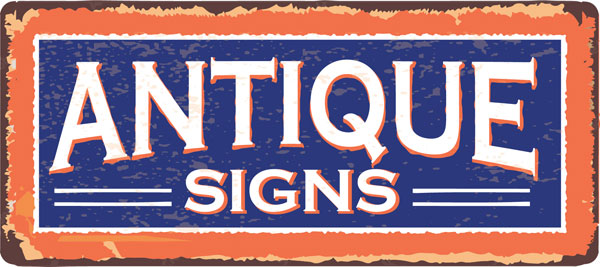The Falkirk Iron Company, founded in 1810 in a low-lying area in east Scotland, embarked on a brief but impactful journey into enamel sign manufacturing in the 1890s, crafting distinctive sturdy signs of heavy-grade quality.
Primarily an iron manufacturer, Falkirk ventured into the realm of enamel some time before 1896, lending their artisanship to local businesses, such as Macniven & Cameron’s Pens in Edinburgh.
Come the roaring 20s, and Falkirk had firmly established itself as a reputable sign manufacturer, fielding commissions from renowned brands like BP, RAC and Mobil Oil.
Yet, beyond their stint in signage, the Falkirk Iron Company boasts a rich and diverse history as a producer of all things iron.

From humble beginnings forging columns for Potter’s timber yard, their expertise expanded to encompass myriad products, ranging from ornamental castings and bronzed decorations to stoves and even bridges.
However, their journey wasn’t confined to the realm of domestic industry, as they were thrust into service during various military conflicts.
During the Crimean War of 1853, they worked ceaselessly, supplying the British and French governments with a formidable arsenal of shot and shells, cannons and a surprisingly large number of stoves.
The call of duty beckoned once more during the First World War, with Falkirk assuming the mantle of a Government Controlled Establishment in 1915. Amid the turmoil, their workforce of 1,500, including a significant contingent of women, churned out upwards of 10,000 tonnes of munitions for the war effort.

